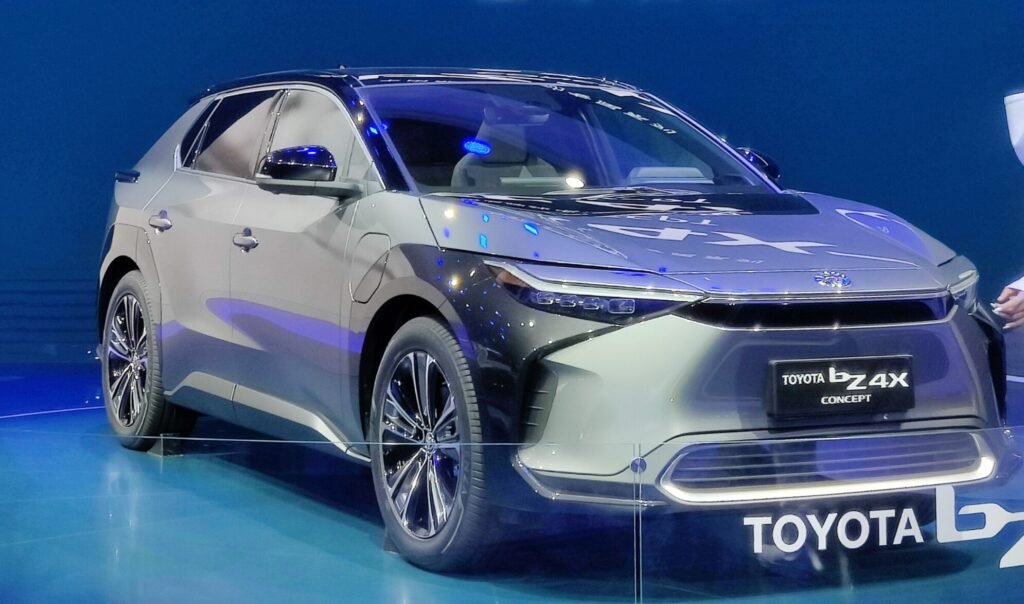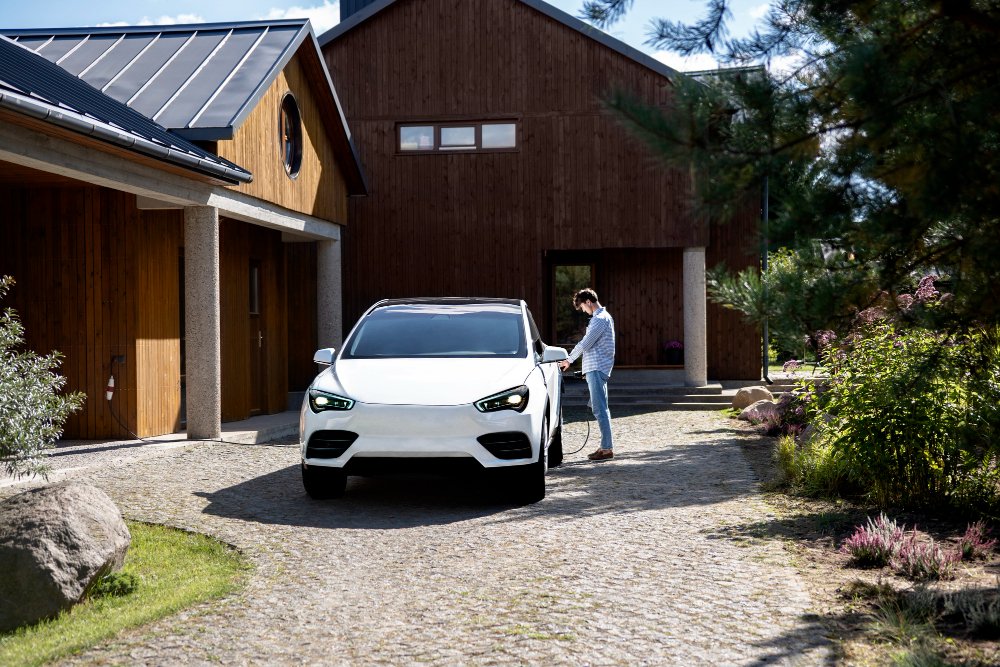As the global shift toward sustainable transportation accelerates, Toyota has stepped up as a key player in the electric vehicle (EV) revolution. Known for pioneering hybrid technology with the Prius, Toyota is now expanding its all-electric lineup to meet growing demand for zero-emission vehicles. In this article, we’ll dive deep into what defines a Toyota electric car, explore the benefits, challenges, real-world applications, and examine the future trajectory of Toyota’s electric ambitions.
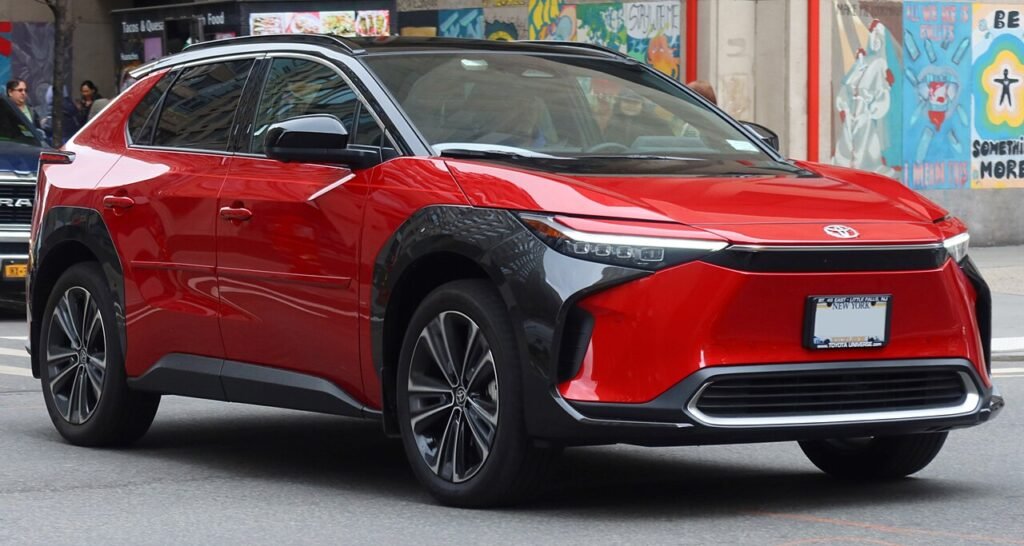
What is a Toyota Electric Car?
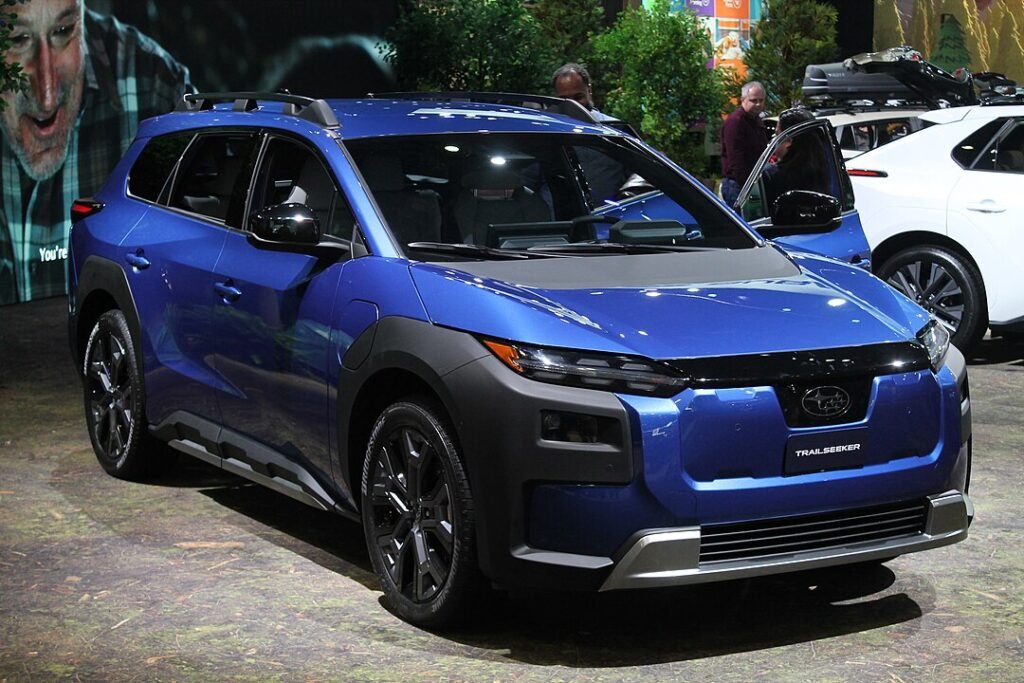
A Toyota electric car refers to any vehicle manufactured by Toyota that operates purely on electric power. Unlike hybrids, which combine gasoline engines with electric motors, fully electric vehicles (EVs) are powered solely by battery-stored electricity. These cars produce zero tailpipe emissions, offer quieter operation, and are part of a broader strategy to reduce global carbon footprints.
Toyota entered the pure EV market later than some competitors, but it has made significant strides with the introduction of models like the Toyota bZ4X, its first mass-produced electric SUV. The “bZ” in bZ4X stands for “beyond Zero,” symbolizing Toyota’s commitment to go beyond reducing emissions and create a cleaner, smarter, and more connected driving experience.
Toyota’s electric vehicles are part of its broader “Toyota Environmental Challenge 2050,” aiming to eliminate carbon emissions from all stages of a vehicle’s life cycle. You can learn more about Toyota’s green initiatives on the Toyota Wikipedia page.
Benefits of Toyota Electric Cars
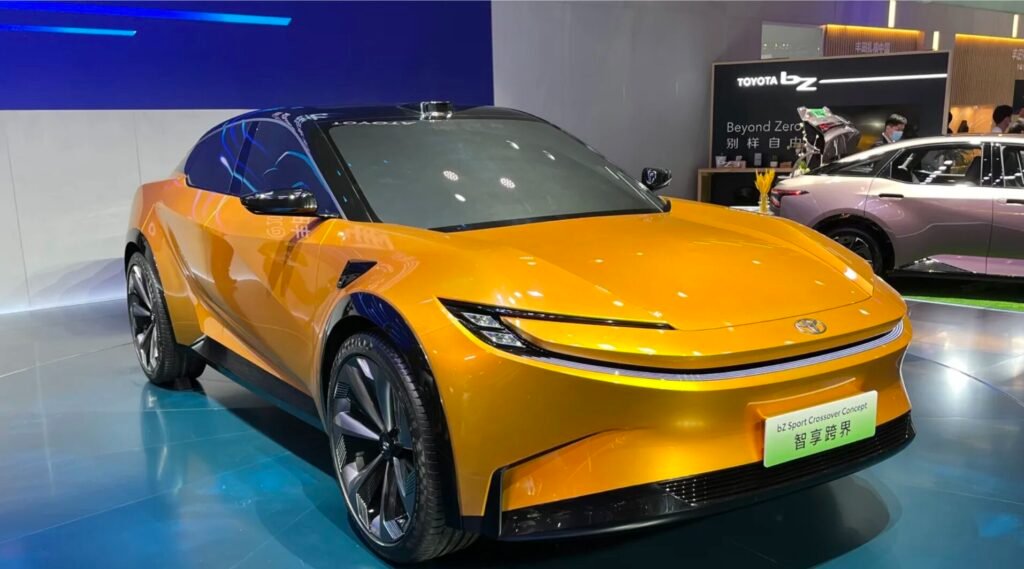
Toyota electric cars offer a range of compelling benefits, both for drivers and the environment:
1. Zero Emissions
One of the most significant advantages of driving a Toyota EV is the complete elimination of tailpipe emissions. This not only helps reduce air pollution but also supports global efforts to combat climate change.
2. Lower Operating Costs
Electric cars generally have fewer moving parts than internal combustion engine (ICE) vehicles. That translates to lower maintenance and repair costs over the vehicle’s lifetime. Electricity is also often cheaper per mile than gasoline.
3. Quiet, Smooth Ride
Toyota EVs provide a nearly silent driving experience with instant torque and smooth acceleration. This makes for a more comfortable and serene drive, especially in urban environments.
4. Advanced Technology
The bZ4X and future models come equipped with advanced safety features (like Toyota Safety Sense), over-the-air updates, and intuitive infotainment systems. Toyota also emphasizes user-friendly charging solutions and remote vehicle control through smartphone apps.
5. Environmental Leadership
By focusing on renewable energy, efficient battery technology, and vehicle recycling, Toyota electric cars embody the company’s long-standing environmental vision.
Challenges Facing Toyota Electric Cars
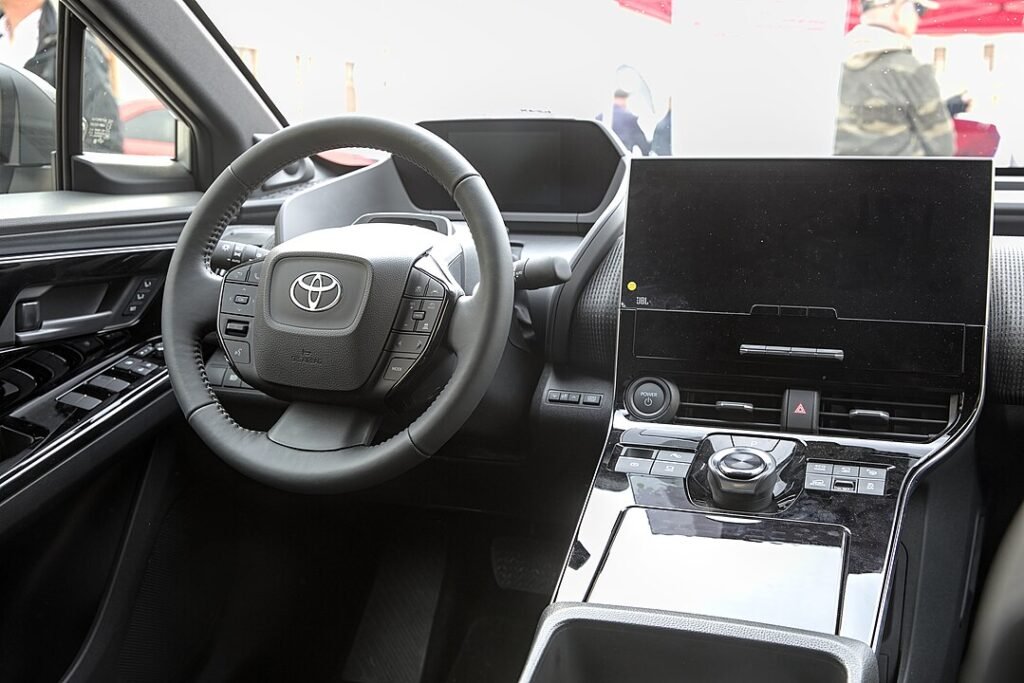
While Toyota is making strong progress in the EV market, several challenges still lie ahead:
1. Late Entry into EV Space
Toyota was initially hesitant to adopt full electric technology, focusing instead on hybrids and hydrogen fuel cells. This delayed entry means the company is now catching up with early EV leaders like Tesla and Hyundai.
2. Limited Model Availability
As of 2025, Toyota’s fully electric options remain limited compared to competitors. The bZ4X is currently the flagship EV, with more models in the pipeline. Consumers looking for greater variety in body styles or features may look elsewhere for now.
3. Charging Infrastructure
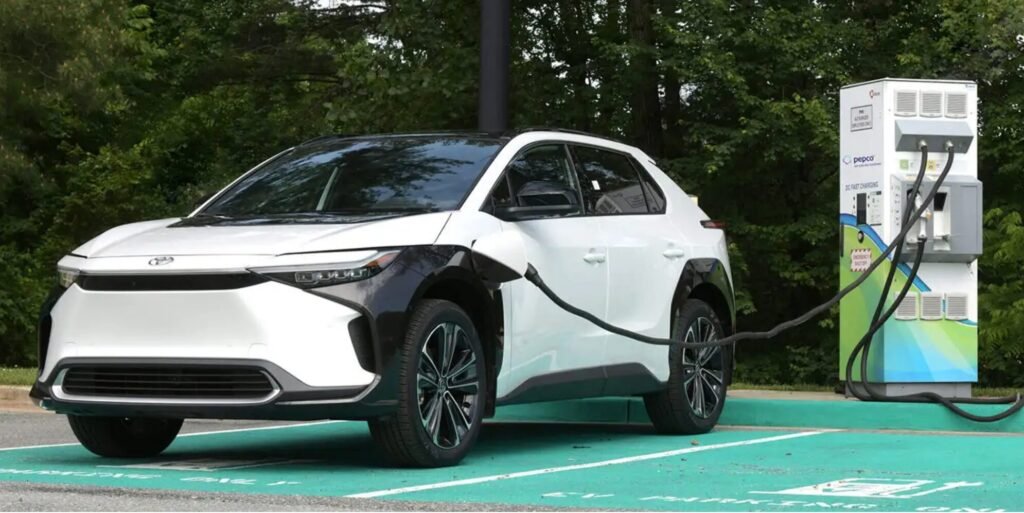
Although Toyota electric cars support fast charging, EV adoption still depends heavily on the availability and reliability of public charging networks. Toyota is partnering with various organizations to address this but it remains a barrier in some regions.
4. Battery Sourcing and Cost
Like other automakers, Toyota faces challenges in securing sustainable battery materials like lithium and cobalt. Additionally, battery production remains one of the costliest aspects of EV manufacturing.
Real-World Example: Toyota bZ4X
The Toyota bZ4X is the brand’s first globally released electric SUV and represents a significant step forward in its electrification strategy. Launched in 2022, the bZ4X was co-developed with Subaru and features all-wheel drive capabilities, regenerative braking, and a futuristic design.
Key features include:
- Up to 252 miles of range (EPA estimated)
- Fast charging: up to 80% in about 30 minutes (with DC fast charging)
- Digital cockpit with a 12.3-inch touchscreen
- Toyota Safety Sense™ 3.0 suite of safety features
The bZ4X has received favorable reviews for its ride quality, cabin comfort, and safety technologies. It also shows Toyota’s growing confidence in the EV sector and hints at what to expect in future models.
Future Trends for Toyota Electric Cars
Toyota has announced bold goals for electrification. By 2030, the company plans to sell 3.5 million electric vehicles annually and introduce 30 new electric models across global markets.
Key Future Trends:
- Solid-State Batteries: Toyota is leading in the development of solid-state battery technology, which could offer faster charging, longer life, and better safety than current lithium-ion batteries.
- Expanded bZ Series: Toyota plans to release additional vehicles under the “bZ” umbrella, targeting everything from compact cars to large SUVs.
- Affordability Focus: Toyota aims to make EVs accessible to more people through improved battery efficiency and cost-reduction strategies.
- Hydrogen-Electric Synergy: While focusing on BEVs (battery electric vehicles), Toyota continues R&D in hydrogen fuel cells, potentially combining strengths from both technologies.
For a deeper look into the evolution of electric vehicles, check out the Electric Vehicle Wikipedia page.
Frequently Asked Questions (FAQ)
What is the range of a Toyota electric car?
The Toyota bZ4X offers an EPA-estimated range of up to 252 miles on a full charge, depending on driving conditions and model configuration.
How long does it take to charge a Toyota electric car?
Using a DC fast charger, the bZ4X can charge from 0% to 80% in about 30 minutes. Home Level 2 charging typically takes 9–11 hours for a full charge.
Does Toyota offer more electric cars besides the bZ4X?
As of now, the bZ4X is Toyota’s main electric vehicle, but the company has announced plans to introduce 30+ new EV models by 2030.
Are Toyota EVs eligible for government incentives?
Yes, depending on your country and region. In the U.S., for instance, the bZ4X may qualify for federal and state EV tax credits.
Is Toyota investing in EV charging stations?
Toyota is working with charging networks and infrastructure partners to expand EV accessibility. The brand also supports home charging solutions for its customers.
Conclusion
Toyota electric cars mark a pivotal transition from a hybrid-heavy legacy to a fully electric future. With the bZ4X as its flagship model and a strong pipeline of upcoming EVs, Toyota is poised to become a major force in sustainable mobility. While challenges like infrastructure and late entry persist, the brand’s commitment to innovation, reliability, and environmental stewardship is clear.
Whether you’re considering your first EV or are a long-time Toyota fan, the electric future looks bright. Stay tuned to Toyota’s developments—and stay charged for what comes next.

